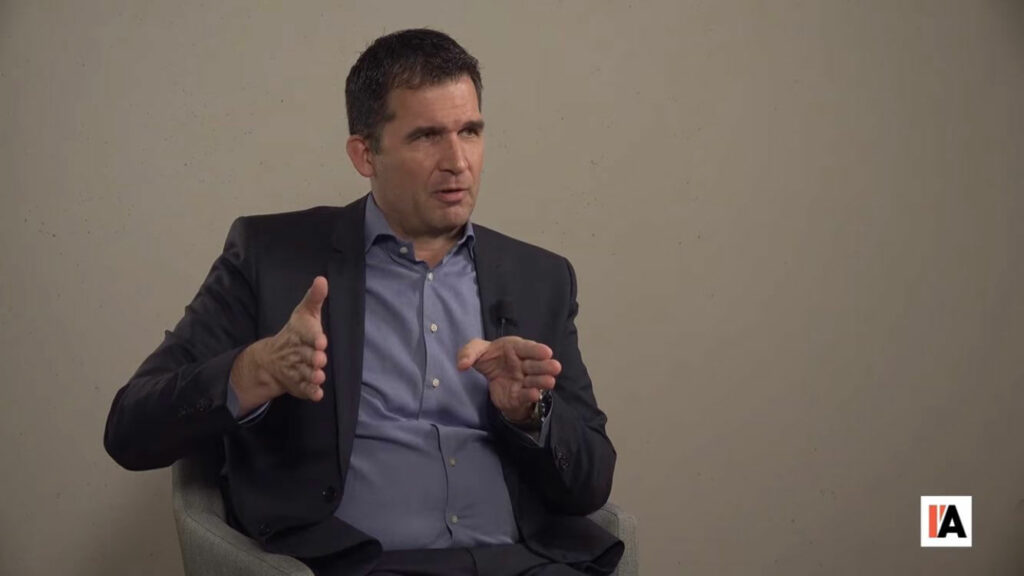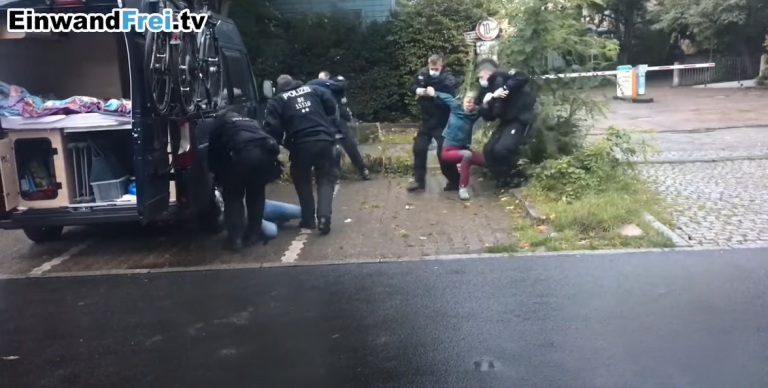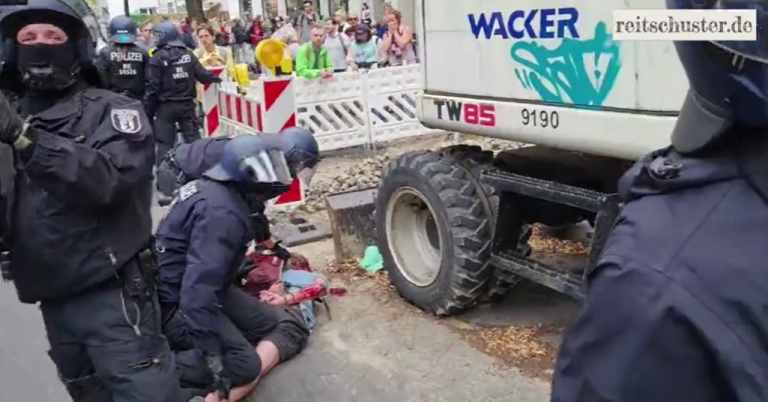Former UN Special Rapporteur on Torture
talks about Brutal Police Actions at Demonstrations.
Author: Mario Martin
Originally published on 21 April, 2022, on Reitschuster.de

Special Raporteur: Nils Melzer
One would expect to hear the things the former UN Special Rapporteur on torture had to say from someone talking about authoritarian states.
Time and time again demonstrations against COVID-mandates were met with police violence.
The aggressive, not rarely brutal, handling of the events was a common theme.
This issue gained wider attention when in the course of a demonstration on August 1, 2021 in Berlin,
a great number of incidences of police brutality were documented and reported.
The police had been explicitly instructed to proceed against protesters with a “low intervention threshold”.
As a consequence there were multiple and repeated calls, often through social media, on the The Swiss professor of Humanitarian Law and diplomat Nils Melzer to look into those occurrences and to intervene*.*
He did just that – still acting as UN-Special Rapporteur at the time – and asked for help.
This was followed by a conversation with the then Secretary of the Interior, Andreas Geisel (SPD: Social Democrats), and the head of the Berlin police (a political office).
Police Brutality in Germany is a Blind Spot.
Recently the legal scholar commented of the results of his investigation in an interview with the newspaper “Die Welt” (Paywall) [link]
Whilst the ban of torture is fully accepted in Germany, “Police brutality… is a blind sport, especially in the context of arrests or demonstrations,” Melzer said.
The material presented to him showed numerous scenes of police officers in action “clearly using excessive force, whilst officers standing by would simply look on, or partake.
It is just this kind of acceptance and participation that is a clear indication of an already established culture of tolerance for police brutality.”
Berlin Police Command show incomprehension
Ever again people had been thrown to the ground in ways that were both dangerous and humiliating without any apparent reason, Melzer describes the pattern of police action.
In one case, a situation escalated in a parking lot while police searched the trunk of a caravan.

Melzer reportedly brought up this incident in a conversation with Berlin’s chief of police, Barbara Slowik, but was only met with incomprehension. “The police seem to be under the misconception, that every one of their measures must be enforced at all costs, and that even purely verbal resistance must be immediately broken by violence,” Melzer criticized.
Slowik seems to have no qualms about implementing harsh measures. In 2020, she sanctioned the use of water cannons on November 18 (Einsatz von Wasserwerfern am 18.11) against peaceful protesters, who had gathered for the preservation of their basic rights.
In this context, a statement by the spokesman for domestic affairs of the Green Party, Benedikt Lux, drew attention when he wrote the following in the newspaper “Neues Deutschland” (New Germany, traditionally considered a ‘socialist’paper).
“We have replaced the entire leadership of practically all Berlin security departments and brought in some pretty good people, in the fire department, the police, the attorney general’s office, and also in the secret service. I hope very much, that this will have an impact in the future.”
Police Brutality Is Not Pursued
Melzer was addressed regarding an incident in Berlin’s Suarezstrasse on August 1, in which police beat a young man lying on the ground.

The man was reportedly beaten unconscious by the police, for which neither criminal nor disciplinary legal proceedings have taken place.
In the course of his investigation, the Special Rapporteur asked for the number of police officers who were convicted of police brutality since January 2020. The answer speaks volumes: only one police officer was convicted.
It was “obviously a case of double standards. In matters of police brutality there is a large discrepancy between the normative ambitions of the German legal framework, and their implementation by the authorities. Overall, the official statistics give the impression of de-facto impunity through procedural protraction,” Melzer complains.
Whenever proceedings against officers are opened, they are dragged out and left in limbo for months, or even years, without address until they are quietly abandoned.
Melzer says that the system does not work, “The fact that Germany imposes practically no sanctions on police brutality is not a sign of good behavior, but rather of systemic failure.
Police Brutality Was Already on the Rise before the Pandemic.
Melzer argues that politicians have a great responsibility in constructing narratives. The last two years have seen a polarization in which protesters were portrayed as enemies of the state.
A pattern of militarization of police forces has been evident since the September 11th attacks in 2001. Officials, he says, no longer see citizens as “civilians in need of protection, but always as potential enemies too.” This, in turn, leads to police being perceived as the enemy by citizens.
The legal scholar concludes the interview by appealing to the states to look closely at the cases and actively sentence culprits. The states must muster the courage and the will to fight violations of the law by their own authorities and officials with determination. If they don’t, they are no longer constitutional states, but ‘blue-sky’ democracies.
Mario Martin is an economist and works as a software project manager in Berlin.
Translation: Oval.media